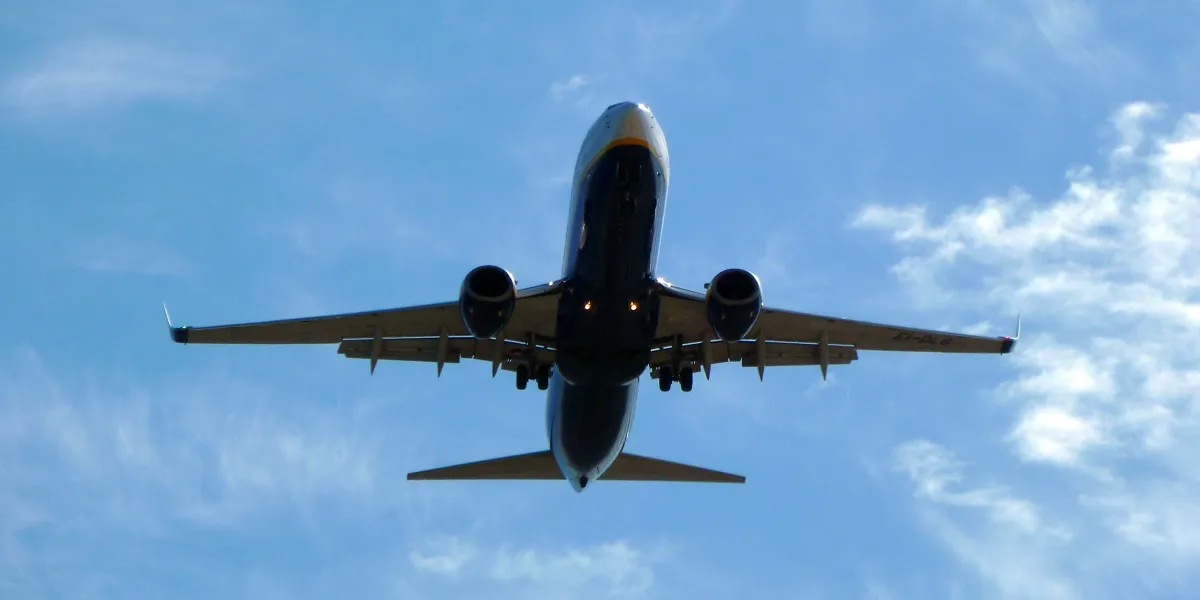
Overseas airlines slam Australian consultation on international borders.
Sep 02, 2021

Overseas airlines have expressed strong criticism regarding the Australian government's recent consultation on international border policies. Industry leaders argue that the process lacks transparency and fails to adequately consider the opinions and needs of airlines and travelers. They emphasize that the restrictive measures have severely impacted the recovery of international travel and air transport. Airlines are calling for a more collaborative approach that prioritizes efficient communication and timely decisions to facilitate smoother travel. The ongoing uncertainty surrounding border measures continues to hinder the aviation sector's ability to rebound from the significant disruptions caused by the pandemic.
Concerns Raised by Overseas Airlines
In recent discussions, overseas airlines have expressed significant discontent regarding the Australian government's consultation process surrounding international border policies. The ongoing pandemic has led to heightened scrutiny of travel regulations, and these airlines believe that the current framework is insufficient and lacks transparency. As international travel gradually reopens, the need for a clear and effective strategy is paramount.
Impact on International Travel
The international aviation industry has been one of the hardest hit by the COVID-19 pandemic. With border closures and travel restrictions, airlines worldwide have faced unprecedented challenges. The Australian government’s approach to consultation has raised alarm bells among overseas carriers, who argue that the lack of proactive engagement could further hinder recovery efforts.
According to industry reports, international air travel to and from Australia has plummeted by over 90% since the onset of the pandemic. With the Australian market being a significant player in global aviation, overseas airlines are keen to understand the government's roadmap for reopening borders.
Feedback from Major Carriers
Major international airlines, including Qatar Airways, Emirates, and Singapore Airlines, have voiced concerns about the lack of meaningful dialogue with the Australian government. They emphasize that a collaborative approach is essential for establishing a safe and efficient international travel framework.
In a recent statement, the CEO of Qatar Airways remarked, "The lack of consultation means that our voices as key stakeholders in international travel are not being heard. This could lead to decisions that are not in the best interest of travelers or the aviation industry." Such sentiments underline the growing frustration within the sector.
Chart: International Flight Traffic to Australia
| Year | International Passengers | % Change |
|---|---|---|
| 2019 | 15.8 million | N/A |
| 2020 | 1.3 million | -91.8% |
| 2021 | 2.1 million | +61.5% |
| 2022 | 5.4 million | +157.1% |
| 2023 (Projected) | 9.2 million | +70.4% |
The chart above illustrates the dramatic decline in international passenger numbers, highlighting the urgent need for a structured approach to reopening Australia’s borders. The projected increase in 2023 indicates a potential recovery, but this hinges on effective communication and collaboration between the government and international airlines.
Key Issues in the Consultation Process
Several key issues have been raised regarding the Australian government’s consultation process:
- Lack of Transparency: Airlines have noted that the current consultation lacks transparency, making it difficult for them to adequately prepare for changes in travel regulations.
- Limited Stakeholder Engagement: Many overseas carriers feel that they have not been adequately involved in discussions that directly impact their operations and the safety of travelers.
- Slow Response to Industry Needs: The aviation sector is constantly evolving, and airlines believe that the government’s responses have been slow and reactive, rather than proactive.
Future Outlook for International Travel
As the world continues to navigate the complexities of post-pandemic recovery, the future of international travel in Australia remains uncertain. Airlines are calling for a more robust framework that prioritizes safety while facilitating the resumption of travel.
In addition to clear communication, airlines are advocating for policies that align with global best practices, including standardized testing protocols, vaccination requirements, and health safety measures. By fostering a collaborative environment, the Australian government can ensure that it is not only protecting public health but also supporting the recovery of a vital industry.
Conclusion
In conclusion, the dissatisfaction expressed by overseas airlines regarding Australia’s consultation on international borders is a significant concern that requires immediate attention. With the aviation industry poised for recovery, it is crucial for the Australian government to engage in meaningful dialogue with international stakeholders. By addressing these concerns and working collaboratively, Australia can pave the way for a safer and more efficient travel experience for all.
Related Articles

Explore Thailand: The Best Islands to Visit for Paradise, Adventure, and Relaxation

The Ultimate Guide to the Best Islands in Thailand for Your Next Getaway

Do babies need passports? How to get a passport for a newborn

How to get a U.S. passport fast: here’s how to expedite the process

What is Mobile Passport Control: 5 reasons why you should use it

SENTRI vs. Global Entry: A detailed guide

Do you need a passport to go to the Bahamas? Let’s find out

Do you need a passport to go to Mexico? A detailed guide

Do you need a passport to go to Canada? We got the answer

Do You Need a Passport for a Cruise: An Essential Travel Guide

Booster Seat Requirements: All the Rules to Follow in Your Rental Car

What Are the World’s Most Powerful Passports, and How Does Yours Rank?

How to Take a Passport Photo at Home: A Helpful Guide

You've got to have heart! Southwest's new livery

Your opinion: Should water be free on low cost carriers?

Young women bolder than guys as solo travellers
